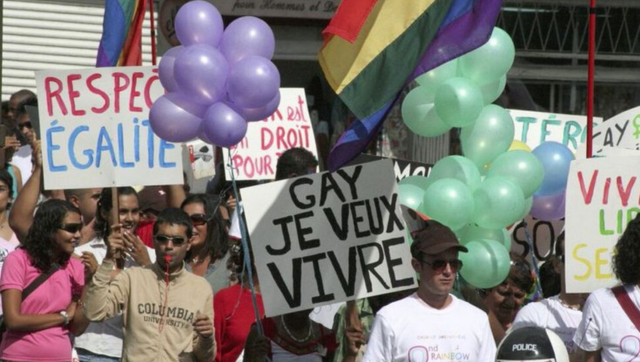A legislation from the colonial era that criminalised same-sex relationships has been overturned by the Supreme Court of Mauritius, bucking a trend in other African countries where laws restricting LGBT rights have been passed or proposed. The Mauritian criminal code, which dates back to 1898 under British colonial control, was declared illegal by the court in a decision on two cases brought by members of the gay community in the Indian Ocean island nation. “Section 250 was not introduced in Mauritius to reflect any indigenous Mauritian values but was inherited as part of our colonial history from Britain,” the court said in a ruling handed down on Wednesday. Despite being sympathetic to the claims made by LGBT citizens, the government, the defendant in the proceedings, had claimed that the timing was not suitable to modify the law through parliament due to societal values. The old statute, however, “criminalises the only natural way for the plaintiffs and other homosexual men to have sexual relations, whereas heterosexual men are permitted the right to have sexual relations in a manner which is natural to them,” the Supreme Court stated. The decision, according to UNAIDS, the UN agency tasked with fighting the HIV/AIDS epidemic, is a significant step in the right direction for equality and respect for the LGBT community as well as for public health. “UNAIDS applauds Mauritius for today’s decision, which will mean that men who have sex with men will have much easier access to the health and social services they need without fear of arrest or criminalisation,” said Anne Githuku-Shongwe, a senior UNAIDS official in the region. “It will save lives.” She noted that efforts to remove stigma and discrimination would need to continue. The Mauritian decision contrasts sharply with developments in other parts of Africa, particularly in Uganda, where one of the world’s worst anti-homosexuality laws was established in May and carries the death sentence for some same-sex conduct. Legislators in a number of other African nations, including Kenya, Tanzania, and South Sudan, are attempting to enact similar legislation in their countries despite the fact that Uganda has been heavily criticised for the law and had part of its aid flows cut off. People in favour of such legislation argue that same-sex relationships are unnatural and that Africans should fight against what they perceive to be Western norms being imposed on their continent and endangering social order. (With agency inputs)
In a ruling on two cases brought by members of the gay community in the Indian Ocean island nation, the court said section 250 of the Mauritian criminal code, which dated back to 1898 during British colonial rule, was unconstitutional
Advertisement
End of Article


)

)
)
)
)
)
)
)
)



